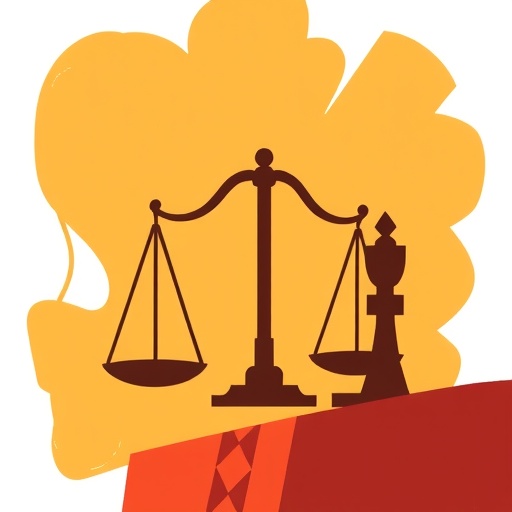In the evolving landscape of organ transplantation, the practice of Donation after Cardiac Death (DCD) has emerged as a pivotal topic of discussion. As the demand for organ transplants continues to rise, medical professionals are increasingly focusing on innovative approaches to expand the donor pool. A recent article by Parent and Buster sheds light on the ethical and legal considerations surrounding DCD, highlighting the complexities faced by various stakeholders, including the Organ Procurement and Transplantation Network (OPTN), Organ Procurement Organizations (OPOs), transplant surgeons, and recovery teams. The implications of DCD practices are vast, warranting a fresh and critical examination of its ethical frameworks.
At the heart of the DCD process lies a paradox: while it presents an opportunity to save lives, it also raises significant ethical questions. The transition from traditional organ donation paradigms to those that include DCD represents not just a technological advancement, but also a philosophical shift in how we perceive death and the sanctity of life. The authors meticulously dissect this delicate balance, framing DCD as a progressive solution to organ shortages while emphasizing the importance of stringent ethical protocols.
The foundational premise of DCD involves the determination of death, which has substantial implications for both medical practice and societal norms. Typically, organ donation occurs after the declaration of brain death, but DCD shifts the narrative to cases where death is determined based on cardiac criteria. This transition necessitates clear and transparent communication among medical teams and families, as the timing of organ recovery can influence not only the viability of the organs but also the emotional well-being of bereaved families.
Moreover, the authors delve into the intricate legal landscape surrounding DCD. Since the criteria for determining death can vary between jurisdictions, legal frameworks are often inconsistent and sometimes ambiguous. This inconsistency poses a challenge for healthcare providers committed to adhering to ethical standards while navigating the complexities of individual state laws. Jurisprudential challenges can lead to a chilling effect on the willingness of medical professionals to engage in DCD practices, ultimately hindering the potential benefits of expanded organ donation.
As the article discusses, there are moreover concerns about consent. In the DCD framework, obtaining consent must be approached with sensitivity and care. Families are often in a state of emotional turmoil, and the pressure to make quick decisions can complicate the process. The authors recommend implementing comprehensive educational programs that provide families with ample information about DCD, ensuring that they are making informed decisions in what is often the most challenging moment of their lives.
The role of the OPTN is integral in steering the DCD discourse, as it sets policies that govern organ donation practices in the United States. The authors advocate for the OPTN to embrace adaptive policies that reflect the evolving nature of organ transplant methodologies. Incorporating feedback from various stakeholders can enhance the robustness of these policies, ensuring they align with ethical norms and medical best practices. The idea is to foster an environment where DCD can be ethically and effectively integrated into the existing transplant framework.
Transplant surgeons are also pivotal players in this equation. The article highlights the need for continuous professional development for transplant surgeons, emphasizing the importance of understanding the nuances of DCD. As more surgeons become adept at the technical challenges associated with DCD, there exists an opportunity to balance the ethical dilemmas with the urgency of patient care—essentially blending clinical excellence with ethical integrity.
Recovery teams, often working in tandem with transplant surgeons, must also navigate their operational protocols under DCD. The article explains that they play a critical role in ensuring that organ recovery operations are conducted swiftly and respectfully. The ethical responsibilities of recovery teams extend to treating both the deceased and the grieving family with dignity, highlighting the emotional responsibility that accompanies such critical work.
In this evolving paradigm, the societal perceptions of DCD play a crucial role. Public awareness campaigns can serve as vital tools for addressing misconceptions about organ donation after cardiac death. The authors suggest that increased visibility surrounding DCD can not only alleviate concerns but also encourage more individuals to consider becoming organ donors—thereby potentially mitigating the pressing organ shortage crisis.
Furthermore, the potential integration of technology in facilitating DCD is worth mentioning. Innovations in monitoring and assessment can enhance the precision with which death is determined, thereby improving outcomes for organ viability. The article posits that embracing technological advancements can transform the landscape of DCD, making it a more effective and ethically sound practice.
Finally, as Parent and Buster articulate, the ongoing conversation surrounding DCD is essential for shaping future practices. As medical ethics continue to evolve in response to technological advancements and societal changes, the dialogue must remain active and inclusive. Stakeholders across the healthcare spectrum—medical professionals, legal experts, ethicists, and families—must come together to create a framework that honors both the scientific potential of DCD and the sanctity of life it aims to preserve.
In conclusion, the exploration of ethical and legal considerations in the realm of DCD is a testament to the complexities of modern medicine. Parent and Buster’s article serves as a roadmap for navigating these challenges while encouraging a more humane approach to organ donation practices. In the quest to save lives, understanding the intertwining of ethics, law, and medical practices will be integral to the success of DCD initiatives in the future.
Subject of Research: Ethical and legal considerations for Donation after Cardiac Death (DCD) in organ transplantation.
Article Title: Innovations in DCD: Ethical and Legal Considerations for the OPTN, OPOs, Transplant Surgeons, and Recovery Teams.
Article References:
Parent, B., Buster, A. Innovations in DCD: Ethical and Legal Considerations for the OPTN, OPOs, Transplant Surgeons, and Recovery Teams. Curr Transpl Rep 11, 286–293 (2024). https://doi.org/10.1007/s40472-024-00448-2
Image Credits: AI Generated
DOI: Not provided.
Keywords: Donation after Cardiac Death, organ transplantation, ethical considerations, legal frameworks, OPTN.




